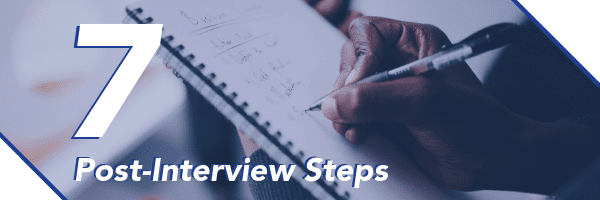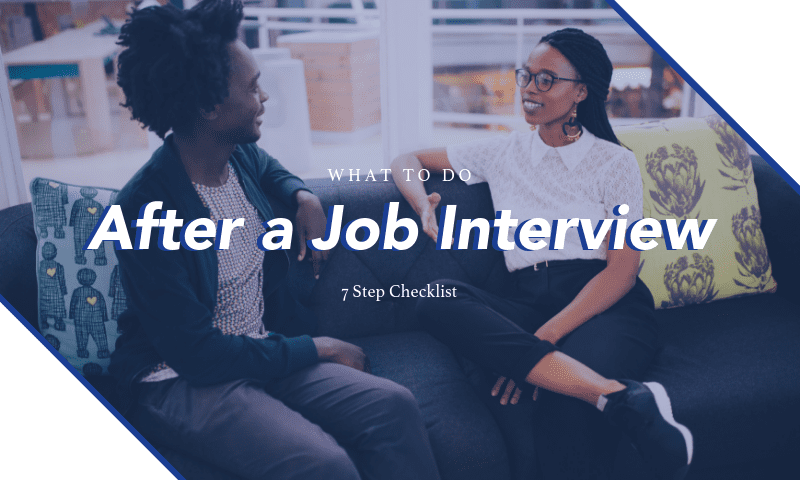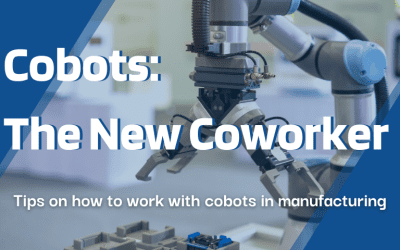WHAT TO DO AFTER A JOB INTERVIEW:
There are a ton of resources out there about how to prepare for an interview like, {{cta(‘b8ca46ee-641a-4165-8bc1-b085773237d7’)}}, {{cta(‘53962f84-3e5c-41fc-9b59-04892619a2da’)}}, and {{cta(‘db0862b0-484a-457f-92b8-54999481d7d1’)}}. While the job interview is important, the steps you take after it can have a major impact on your interview success rate.
You don’t have to sit around waiting anxiously to hear back from your interviewer. Instead, try channeling that energy into productive activity that can help you stand out from the crowd. Follow these seven steps after your next interview.

Step 1: Ask Immediate Post-Interview Questions
Asking immediate, post-interview questions gives you the opportunity to do some additional research and find out of this job is truly the best fit for you. It is your chance to gather specific information on the position, the department, the team, and the company. Asking post-interview questions not only allows you to walk away with all the information you need, but it also shows the interviewer that you are enthusiastic, truly interested in the opportunity, engaged in the conversation, and that you came to the interview prepared. {{cta(‘6bcc89b2-0c6a-4131-877b-177dd68f1654′,’justifycenter’)}}
Step 2: Send Your Thanks
Following an interview, promptly (within 2-3 business days) write the interviewer a note expressing appreciation and thanks for taking the time to conduct the interview. The wonderful thing about follow-up notes is that they can come in multiple formats. Thank-you notes can be hard-copy typed, handwritten, or e-mailed. Not sure where to start? {{cta(’63d91457-a2fb-4539-95d4-f0f107e7ed7a’)}}
Step 3: Document Unique Interview Questions
The majority of any interview will be spent answering a series of questions that allow the hiring manger to get a better understanding of who you are and the work you can produce. Often times, the questions you are asked will be like {{cta(’03d50880-209c-4a18-aa40-88cba6003ab6′)}}. It is important to document any interview questions you may not have been asked before. These unique questions can help you to be better prepared for future interviews and less likely to be thrown off by the unexpected.
Step 4: Send Additional Documentation
Many interviewers may request additional information post-interview. This could be anything from a list of references, to a writing sample, to a professional portfolio. Always be sure to send any additional documentation to the hiring manager within 1-2 business days after the request was made. You’ll want to obtain tracking information for any packages sent via mail or a read receipt for any emails sent if you are not dropping the content off in person.
Step 5: Stay Connected
After an interview, you should expect feedback from the interviewer. Make sure all the contact methods you’ve provided are correct and that you are actively checking them. It would be such a shame to have completed the interview and miss a vital email, text message, or phone call with next steps.
Step 6: Notify Your References
Not only should you be actively checking your contact methods, but you should also make sure that your references are aware of the interview, as they may also be contacted. Be sure to provide your references with enough information to be adequately prepared for any questions they may receive. You should always let them know the following when waiting to be contacted as a reference post-interview:
- What company you interviewed with
- The position you interviewed for
- The name of the person they should expect to be contacting them
- Any key points you’d like them to highlight
Step 7: Follow-Up After Expected Grace Period
KEEP THE CAREER TIPS COMING:
Subscribe to MAU’s Career Tips blog for more tips and tricks to help you navigate today’s job market. MAU’s Career Tips Blog covers everything you need, from ways to increase your income to skill-set development and more! Get blogs like the one you just read and more when you subscribe.
{{cta(‘f7740144-ab67-4d43-a14c-47bc10fca8c8′,’justifycenter’)}}




-400x250.png)